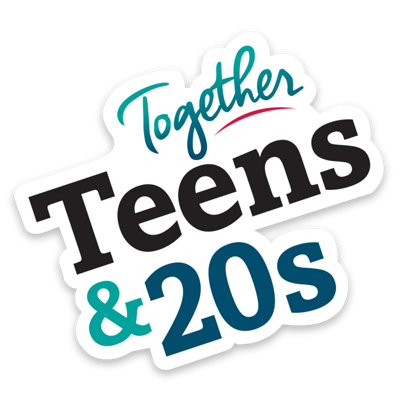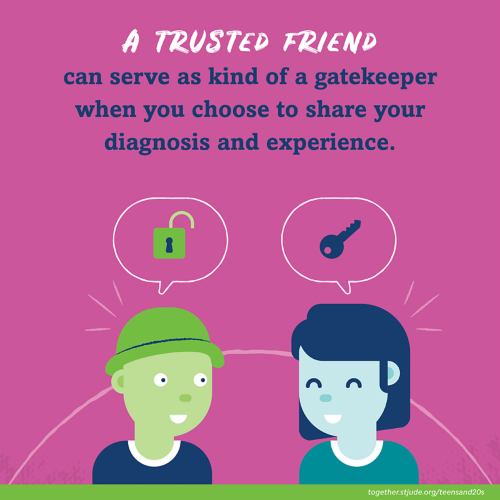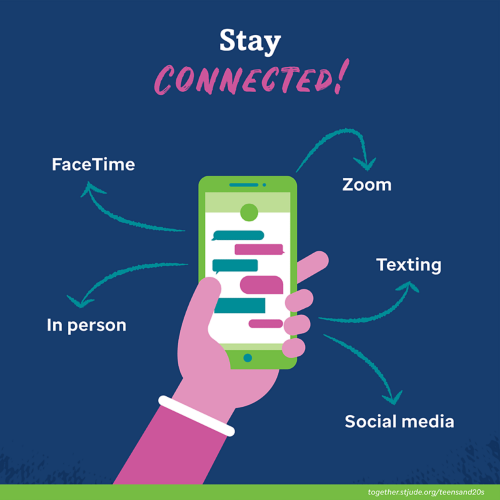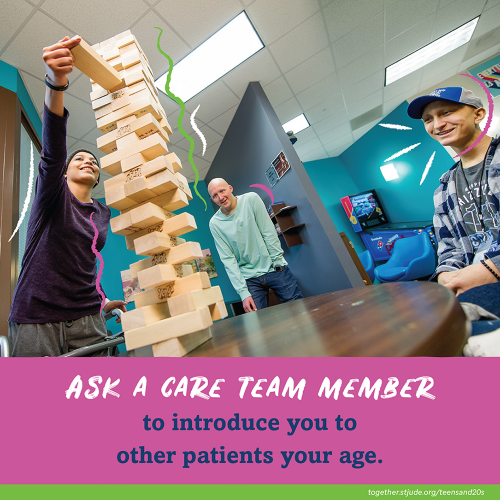It’s not unusual to experience changes in your friendships when you are going through cancer treatment.
Your friends may not know what to say or do. Much of your time is taken up with treatment and appointments with your care team. Treatment will likely affect how you feel physically, mentally, and emotionally. You may or may not be able to attend school and school activities.
Many people who have been through cancer say that the experience helps you learn who your true friends are. It’s possible you may lose contact with some friends during this time, but you may also gain new, lifelong friends.
Cancer can bring out the best and, sometimes, the worst in people.
Friends can be a source of support as you go through cancer. A friend is someone you can talk to or hang out with — a person you can text just to say “Hey, I’m having a bad day” or “I’m bored, entertain me.”
One or two good friends may be all you need. You don’t have to have dozens of different friends, but if you do that’s OK, too. During cancer treatment, you are surrounded by adults. It’s good to have time with people your own age.
What to say to your friends
After your cancer diagnosis, think about how much you want to tell about your health and who you want to tell. You may want to share many details about your experience or just part of it.
You might want to ask a friend or trusted adult to be the one that shares the news and serve as kind of a gatekeeper if you don’t feel like to talking to a lot of people.
Don’t be shy about reaching out to others and telling them what you need. Friends may not know what you want unless you tell them. They may not reach out because they don’t want to bother you because they worry you don’t feel well or they just may not know what to say.
Changes in friendships that might happen
Each person’s experience is different, but you can expect that some of your relationships will change in different ways.
- Your friendships with some people may grow stronger.
- At first, people may reach out and have lots of questions. But over time the attention may drop off.
- People you didn’t know as well may step up in ways you never imagined. Sometimes news of illness brings people “out of the woodwork.” Someone you haven’t heard from in a while may be there to offer support. Others may want to be your friend to get attention for themselves.
- There will be opportunities to make friends with new people who may understand you in ways your other friends don’t.
How to stay connected
If you are not able to get together in person, FaceTime, Zoom, and similar services can be a good way to stay connected. Social media and texting are good options, too.
How to find new friends
Many hospitals have teen and/or young adult rooms where you can hang out. You can ask a care team member to introduce you to other patients your age.
If you’re having trouble making friends, talk to a trusted adult, friend, or care team member. Have they observed anything you’re doing that could have an impact on making friends?
If you feel up to it, get involved in activities and groups where you can meet people with similar interests.






